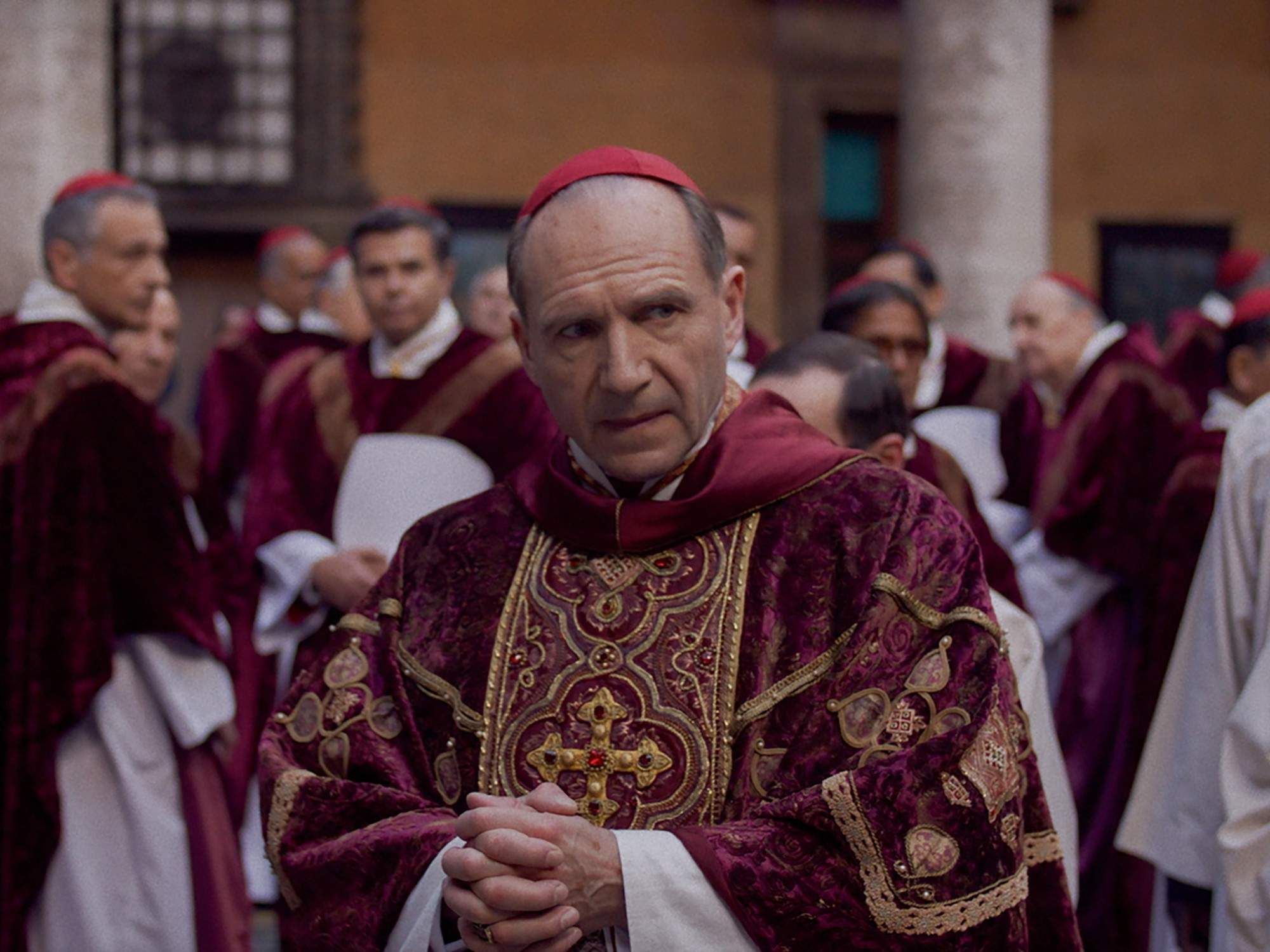Movie Review
Ralph Fiennes navigates the politics of choosing a pope in Conclave

Ralph Fiennes in Conclave.
Due to the sheer size of its membership — nearly 1.4 billion people as of 2021 — it’s no surprise that the Catholic Church has been referenced in countless movies throughout the art form’s history. But you have to dig a little deeper to find films that have the Pope or the concept of the papacy as its driving force, as is the case in the new film, Conclave.
The fictional film opens with the death of the previous pope, with Cardinal Lawrence (Ralph Fiennes) tasked with the duty of leading the conclave, the process for choosing the next pope. His position of authority has some of the top contenders looking to bend his ear, including Cardinal Bellini (Stanley Tucci), Cardinal Tremblay (John Lithgow), and Cardinal Tedesco (Sergio Castellitto).
Lawrence must not only juggle this desire for power from rival cardinals, but also the appearance of the heretofore unknown Cardinal Benitez (Carlos Diehz), violent events taking place outside of Vatican City that threaten to derail the process, and his own crisis of faith, a feeling that becomes stronger the longer the conclave takes.
The full arc of the film, directed by Edward Berger and adapted by Peter Straughan from the book by Robert Harris, involves little more than senior Catholic officials debating over and voting for the new pope, but it still makes for one of the most compelling movies of the year. The inherently political nature of electing the new pope mirrors that seen in those vying for elected government positions, with some hoping to make the church more progressive, and others wanting to stay pat or even roll back measures that have broadened its membership.
The various scandals the Catholic Church has had over the years, most notably child molestation by priests, hangs over the proceedings in the film. Lawrence and others desperately want to avoid any hint of impropriety in the new pope, and the story takes multiple turns when secrets are revealed about certain people. Even though the film involves the intricacies of a secretive process of one particular religion, it never becomes bogged down in minutiae, telling a story that’s accessible by all.
Berger also seems to know exactly how to pull the strings of certain storylines or characters. Aided by a pulsating score by Volker Bertelmann, he demonstrates how the pressure on Lawrence — both external and internal — is intense and perhaps too much to expect of one person. There is a sustained building of suspense throughout the film as Lawrence tries to make sense of information given to him.
Fiennes, Tucci, and Lithgow are three of the finest actors working today, and their interplay is nothing short of thrilling. They’re aided by lesser-knowns like Castellitto, Diehz, and Lucian Msamati, who each give fantastic performances as well. While her character’s purpose is a bit muddled, Isabella Rossellini showing up as a nun who helps at the conclave adds even more acting power to the film.
You don’t have to have great knowledge of or interest in the Catholic Church to be affected by Conclave. It’s a superb study of the quest for power, one made even more interesting by how each man involved in electing a new pope views it through their own unique prism of morality.
----
Conclave opens in theaters on October 25.
